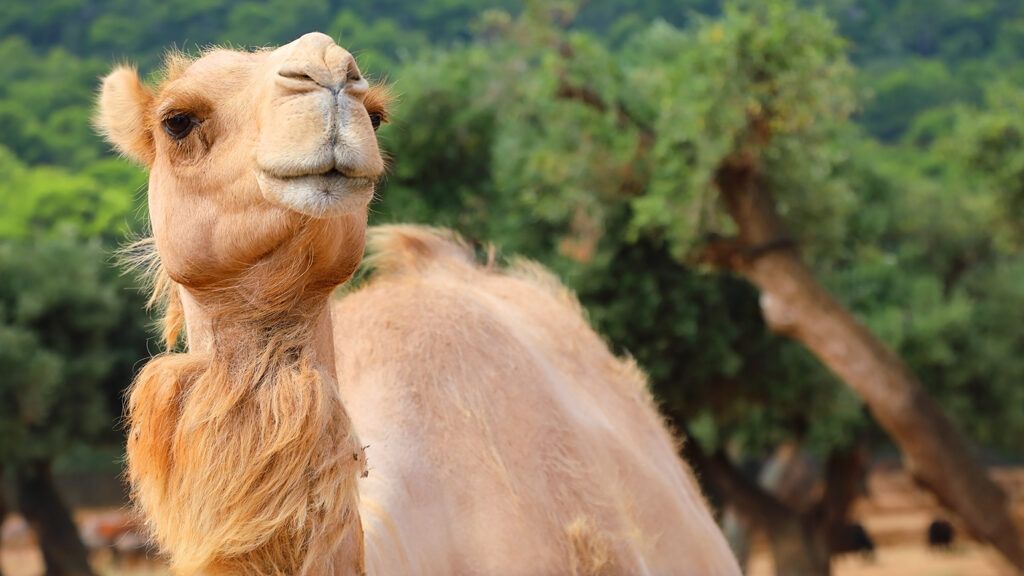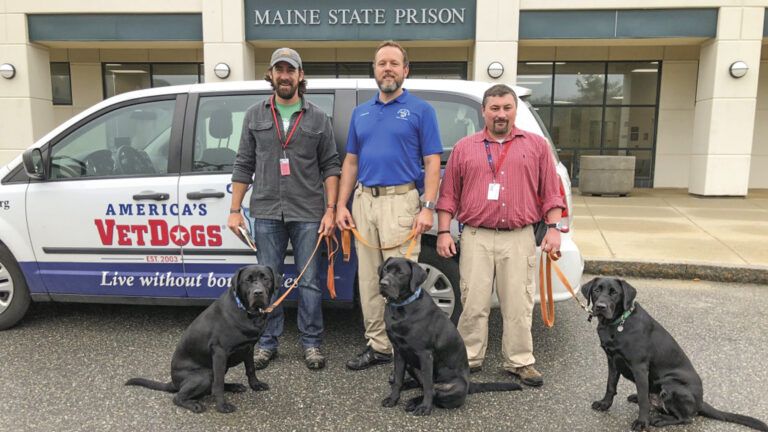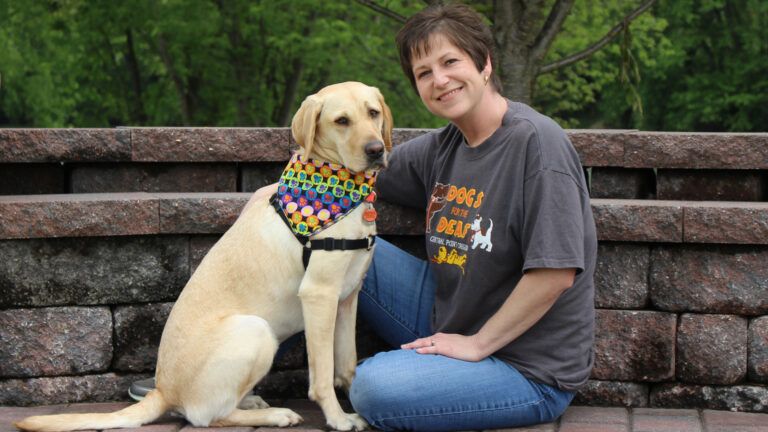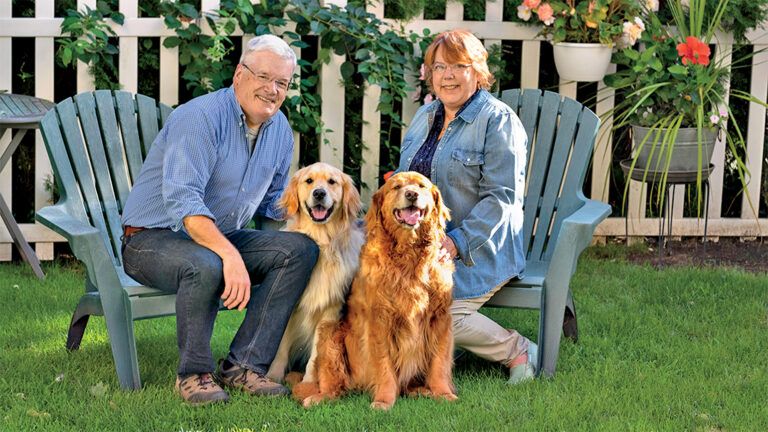The camel’s dark oval eyes were glazed, the lids only half open. He lay on the ground in his pen, his mangy flanks quivering with each labored breath.
That November morning, Roger, our animal director at Boys Ranch Town, a 145-acre farm for troubled boys on the outskirts of Edmond, Oklahoma, had come to me, worried. “I can’t get him to stand,” he said. “He’s rubbing holes in his skin by dragging himself around.”
Now I watched anxiously as the vet I’d called looked the camel over. Despite arthritis and wobbly joints, the exotic creature had become an integral part of our program since he was donated to us a couple of years ago, teaching the boys the responsibility of caring for an animal, and even starring in the scene with the wise men in our annual drive-through Christmas pageant.
He was as friendly as a great big puppy, and the boys loved Forrest Hump, as they called him. Finally, the vet finished his examination. “Your camel has progressive, degenerative joint disease,” he said. “He’s not going to get better. The humane thing would be to put him down.”
I sank down on a hay bale. I’d made a lot of tough decisions as campus administrator for the ranch, but this was the most painful. Put him down? What would I tell the boys? Yes, Lord, I knew this day would come. But these boys have lost so much—homes, parents, siblings. Must they lose their beloved camel too? Yet, in my heart, I knew it would be cruel to let Forrest suffer. I found Roger and broke the news. “Isn’t there another way?” he asked.
“I’m afraid not,” I said. “Tell the boys when they come to the barn this afternoon. Give them some time to get used to the idea, then arrange for the vet to come back. We can’t have Forrest suffer any longer.”
I busied myself with other matters. As administrator, I wasn’t with the boys at the ranch every day, but one of my duties was deciding who would be admitted. I was considering a 17-year-old named Kyle. Our cutoff was 15. Still, his social worker had begged me to consider him. Abandoned by his parents, Kyle had spent the last few years bouncing among relatives, in and out of shelters and foster homes.
Most recently, he’d lived on the streets—sneaking into a trailer at a construction site after dark to catch some sleep. He had no idea what a normal life was like and didn’t trust anyone. “I think he’ll turn around at the ranch,” the social worker said.
I relented, but regretted it a few days later when Kyle’s house parent gave me a call. “He won’t listen to anything I say,” she said. I went down to the cottage to check on Kyle. I marched in to find clothes everywhere, trash all over the desk, his bed unmade. “Kyle, you must clean your room,” I demanded.
He stared down at the floor, his baggy clothes seeming to swallow him up. “I don’t want to,” he said. I gave him a lecture. But he didn’t acknowledge a word. Finally I walked out, spent. On my way back to my office, a prayer stormed through my thoughts: Lord, did I make a mistake? Is there any way to reach a boy like this?
The reports of his bad behavior kept coming. “Kyle won’t do his chores.” “Kyle verbally threatened one of the other boys.” I was walking through the ranch one day when I heard a commotion outside my office. “Leave me alone!” I heard Kyle shout.
The scowl on his face and the way he wrenched away from his house parent said it all. He’d been teasing a younger boy and wasn’t taking the reprimand well. “This place is stupid,” he yelled. “I don’t know why I’m here!” I shook my head. In the 11 years I’d worked at Boys Ranch Town, I’d never given up on a child. I always had faith that with love, and proper discipline, any boy could change. But Kyle…he seemed to have as little chance at recovery as Forrest had.
Forrest…how long had it been since I’d checked on him? I’d been so occupied with Kyle. I drove up to the barn to see if Roger had taken care of things. A group of younger boys was huddled in Forrest’s pen. They were hand-feeding him and urging him to drink from a pail of water. It was heartbreaking. I hated to tell these kids to give up. But they had to know when it was time to quit. I confronted Roger. “I know,” he said, “but the boys are praying every night that Forrest will get better. I’ve never seen them pray with such conviction. They believe God is going to heal that camel.”
“Roger, it’s not fair to let them get their hopes up,” I said, irritation rising in my voice. “Call the vet. If you don’t, I will.” I walked away feeling angry. I hated to give up on Forrest, but what good would it do to hold out false hope? The vet himself said our camel had no chance of recovery. I’d already made one dreadful mistake with letting Kyle in. I wasn’t going to blunder again when it came to Forrest.
The Christmas pageant was coming up, always a fun time for the boys. Carloads of folks would drive through our ranch to see our boys present scenes from the Nativity story. Animals from our ranch joined in—donkeys, cows, sheep…and until this year, Forrest, the star of the show. I hoped Kyle would participate. That would at least be a step in the right direction, something to feel positive about.
At our first planning meeting for the pageant, we gathered the kids and took out an array of costumes. The boys spread out the robes and headdresses, talking excitedly about the roles they wanted to play. Except for Kyle. He slumped in a chair, arms crossed, sulking.
A few days later, I went back to the barn. I hoped Roger had dealt with the Forrest situation. But, no, there was still one boy crouched by the camel, a feed bucket at his side. Kyle. He was talking softly to Forrest, in a way I’d never heard him speak before. Kyle reached out and scratched Forrest behind the ears, letting the camel nuzzle him. “Hey, Kyle, how’s it going?” I said.
Kyle quickly grabbed the feed bucket and stood up. “Fine,” he muttered, hurrying past me out of the barn.
Not long after, I drove by the barn. Suddenly I slammed on the brakes. An animal was walking across the pasture. I don’t believe it. There was Forrest, standing. I got out and he wobbled toward me. “Roger!” I called. He came running out of the barn, saw Forrest and stopped in his tracks, mouth agape. The vet couldn’t explain it. “Our boys just loved him,” Roger said. “That’s what it took.”
I looked at Forrest with a profound mixture of amazement and relief. I’d thought the boys were being foolish, holding out hope for him. But shouldn’t I be doing the same for Kyle? Maybe it wasn’t so foolish after all. If God could help heal a sick camel, he could certainly help heal this troubled kid. So instead of giving up, I doubled my prayers for Kyle.
There was quite a crowd on the first night of the Christmas pageant. Lines of cars slowed my approach to the ranch as I drove up. I slipped the narration CD into my player. The kids looked great, I thought as I drove toward the first station: the birth of Jesus. “…They saw the child with his mother, Mary, and they bowed down and worshiped him.
Then they opened their treasures and presented him with gifts of gold, incense and myrrh…” The manger scene was perfect. Our farm animals surrounded the small basket where the baby Jesus lay sleeping. Mary and Joseph looked on adoringly. Then I saw the three wise men in flowing robes holding their gifts, gazing at a far-off star, with their camel, Forrest, by their side.
All of a sudden, I did a double take. I almost didn’t recognize the boy dressed in the wise man’s robes, his arm resting on Forrest, his hair cut short, mostly hidden beneath his costume wig. The last boy in the world I’d thought would volunteer for a role like this. A boy I’d thought was too far gone to help. Now I saw how close he must’ve been all along.
For more inspiring stories, subscribe to Guideposts magazine.




